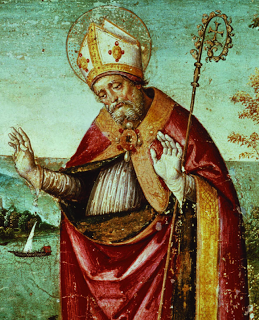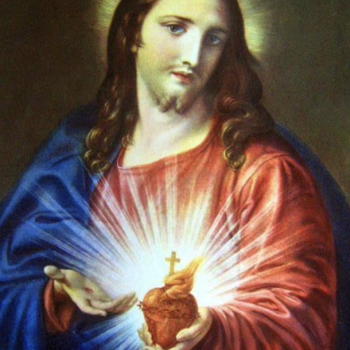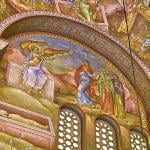 If Origen’s central concern was God’s desire to unify man to Himself, Augustine’s central concern was God’s love for humanity. We have already looked at the many and varied images that are employed by Augustine as he sought to show how the cross was used by God in Christ to accomplish the redemptive work of salvation. It is now necessary to turn our attention to the underlying theology that guided all of these images.
If Origen’s central concern was God’s desire to unify man to Himself, Augustine’s central concern was God’s love for humanity. We have already looked at the many and varied images that are employed by Augustine as he sought to show how the cross was used by God in Christ to accomplish the redemptive work of salvation. It is now necessary to turn our attention to the underlying theology that guided all of these images.
Augustine’s theology seemed to have developed around his struggles with Romans 5:9-10. These passages state we have been, “Shown righteous in the blood of [Jesus]” and “reconciled to God through the death of his son.”
Augustine saw this passage as raising two questions.
- First, what is the nature of the reconciliation.
- And second, what was the power of the blood?
The idea of reconciliation posed an difficult dilemma for Augustine. He did not believe the reconciliation could have been an appeasement in the wrath of God. If Jesus was somehow appeasing God by standing in the stead of man that would mean that somehow the Son had already been appeased, which would create a conflict between The Father and The Son. Augustine viewed the words of Paul in Romans 8:31-32 as evidence that the Father was already appeased, since he offered his son up. In fact God is understood to have a continual attitude of love for humanity and not wrath.
The only way that one can understand the cross, for Augustine, was an act of love for the world by God as a unity of three persons in harmony. Augustine indeed states that the incarnation was a demonstration of, “how great a price God rated us, and how greatly He loved us”
Augustine’s answer to his second question, what was the power of the blood, was rooted in an understanding of God’s own economy and value system. Augustine realized that God could have overcome the Devil with power. God is fully capable of overpowering any creature, sin, vice, or person. God choose to overcome with blood because he wanted to operate within a system of righteousness rather then one of power. God chooses right over might. Augustine believed that the Devil had gained power over mankind when mankind had sinned. Man’s sin justly handed him over to the reign of the devil, and the death that that reign brings. God allowed this in his justice, but it did not affect God’s love for humanity. As a result the love of God compelled him to redeem His creation through an act of Justice.
On the cross the Devil slew Jesus, although there was nothing worthy of death in Jesus. This injustice on the devil’s part broke the power that he had over humanity, and God could now justly set free those bound by death. As Augustine says:
“He [satan] indeed had power to shed His Blood, he did not attain to drink it. And in that he shed the Blood of Him who was no debtor, he was commanded to render up the debtors; he shed the Blood of the Innocent, he was commanded to withdraw from the guilty.”
The blood of Christ was powerful because it was truly human, but also truly innocent.
Augustine believed that God had chosen save through a demonstration of His own righteousness rather then through his own power because he wanted to create a life with man where they could participate in God’s saving action with Him. A pure exercise of Divine power would not have given humanity a way of participation. God used the shedding of blood because he wanted to give mankind a path of salvation that they could imitate, and even be united it through the sacramental life of the church.
Although men and women are freed from death and forgiven of their sins, they are not made perfect when they are baptized into Christ. People still fall into temptation and sin. Augustine also viewed The Cross as a sure guide for endurance in Christ. The manor of God’s action is the starting point that demonstrates what true obedience to God looks like.
NOTES
- Augustine, “On the Trinity, Book XIII,” trans. Arthur West Haddan, New Advent, n.d., http://www.newadvent.org/fathers/130113.htm, (accessed March 4, 2012).
- Augustine, “Sermon LXXX,” trans. R. G. MacMullen, Eternal Word Television Network, n.d., http://www.ewtn.com/library/PATRISTC/PNI6-12.TXT (accessed March 6, 2012).
- Augustine. “Exposition on Psalm 95.” Translated by J.E. Tweed. New Advent, n.d. http://www.newadvent.org/fathers/1801095.htm.Augustine, Sermons on the Liturgical Season, trans. Mary Sarah Muldowney (New York, NY: Fathers Of The Church, Inc., n.d.), 201-22.
















